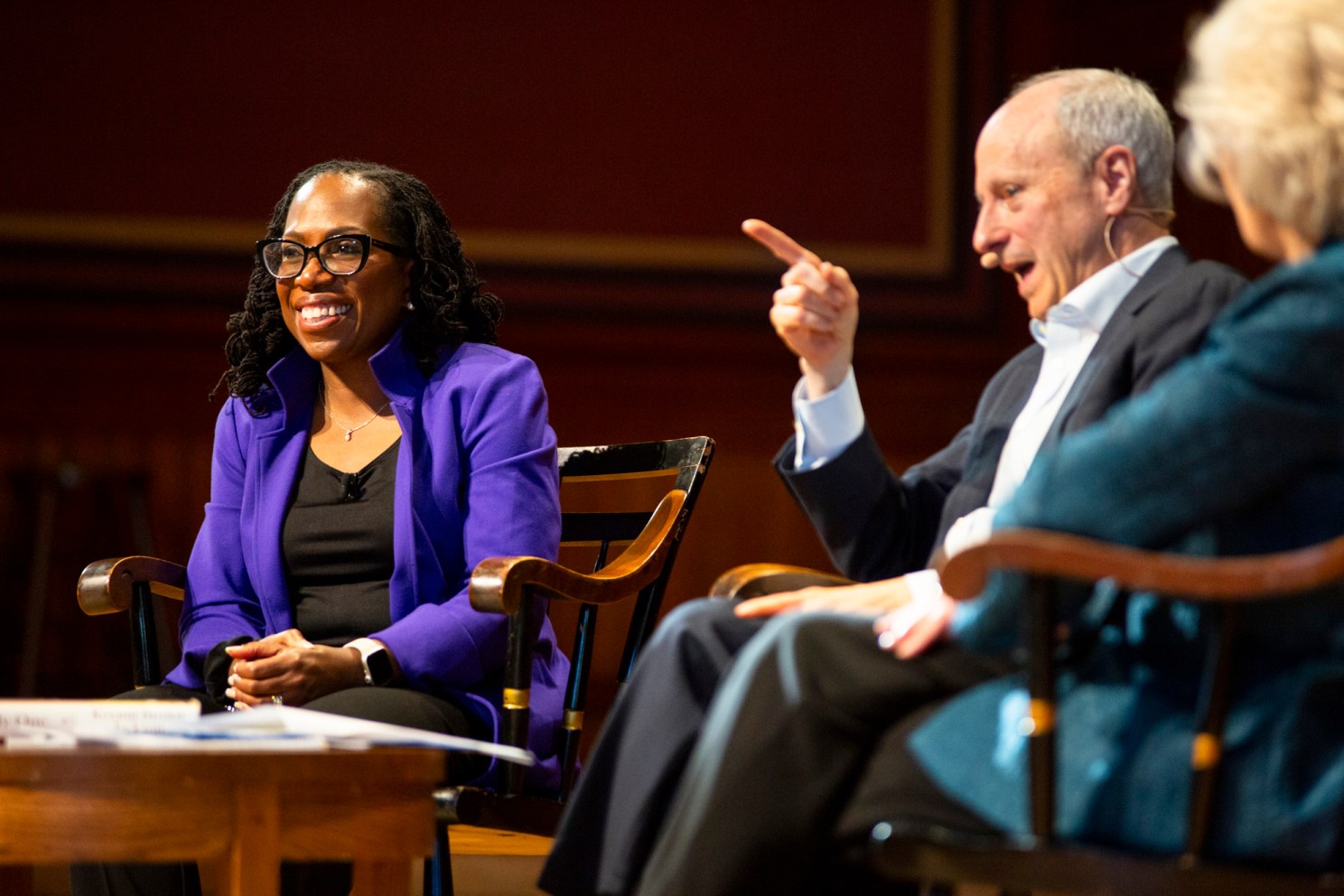Ketanji Brown Jackson? Present!

Supreme Court Justice Ketanji Brown Jackson (left) with Michael Sandel and Margaret Marshall, former chief justice of the Supreme Judicial Court of Massachusetts.
Photo by Grace DuVal
Supreme Court justice revisits Michael Sandel’s class, which left her with lessons that lasted long beyond her time in it as first-year
In a passage from “Lovely One,” Supreme Court Justice Ketanji Brown Jackson ’92, J.D. ’96, is a Harvard College first-year drawing a smiley face in her notes for the course “Justice.”
“I want to laugh at the way my mind spins as I listen to the opinions being expressed,” she writes in a College essay excerpted in the new memoir. “I want to know the answers. I glimpse that there are no answers. Yet to wonder is not enough. We must never stop asking the questions.”
On Tuesday, Jackson was met by 800-plus smiles — and a standing ovation — as she returned to visit a course that proved influential in her life. Welcoming her at Sanders Theatre was Michael J. Sandel, the Anne T. and Robert M. Bass Professor of Government, who has taught “Justice” since 1980. Jackson credits Sandel’s Gen Ed offering with building her confidence while instilling a passion for healthy debate.
“I felt myself expanding and growing more visible to myself as I engaged the great philosophical conundrums,” she writes in the book. “The animated discussions about open-ended ethical dilemmas made me come completely alive.”
Seated with Jackson under the bright stage lights, Sandel invited students to engage with the issue of affirmative action while drawing on insights from influential philosophers, ancient and modern. Primary readings this semester include works from Aristotle, Immanuel Kant, and John Rawls. But the syllabus also features the 2022 U.S. Supreme Court decision rejecting affirmative-action policies at Harvard College and the University of North Carolina.
Some students lined up to share responses to Jackson’s dissent in the UNC case. (She recused herself in the case of Harvard, having served on its Board of Overseers.) Jackson may have been a quiet participant in “Justice” three decades ago, as she notes in the book. But she was much less so on her return to the two-hour lecture as she laid out her legal and moral reasoning on affirmative action. The whole exchange was off the record.
Taking the stage to address the class for the final 45 minutes of the session was Margaret Marshall, Ed.M. ’69, former chief justice of the Supreme Judicial Court of Massachusetts. Sandel assigned students to read her 2003 opinion in Goodridge v. Department of Public Health, which established the right to same-sex marriage for the first time in U.S. history. Sandel said that Marshall’s opinion is a rare piece of legal writing with the resonance of prayer. It has found second life as a popular reading at weddings nationwide.




